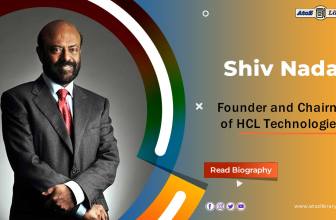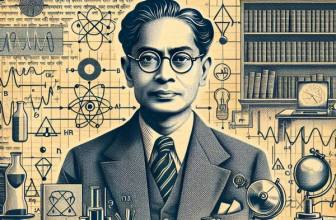
Introduction
Jawaharlal Nehru was a leading figure in India’s independence movement and served as the country’s first Prime Minister from 1947 until his death in 1964. Born into a wealthy and politically influential family, Nehru became interested in politics at an early age and joined the Indian National Congress Party. He was a close associate of Mahatma Gandhi and was imprisoned several times for his activism in the fight for Indian independence from British rule.
Once India gained independence, Nehru played a crucial role in shaping the country’s foreign policy, promoting democracy, and fostering economic growth. Despite the challenges he faced during his time in office, Nehru remains an revered figure in India and is widely considered one of the country’s greatest leaders. In this biography, we will delve into Nehru’s life, his political career, and his legacy as the father of modern India.
Jawaharlal Nehru Family, Early Life and Education
Jawaharlal Nehru was born on November 14, 1889, in Allahabad, India, into a wealthy and influential family. His father, Motilal Nehru, was a prominent lawyer and leader in the Indian National Congress, and his mother, Swarup Rani, was a homemaker. Nehru was the eldest of three children and grew up in a large, western-style house with a spacious garden.
Nehru received his early education at home, studying English, Hindi, and Sanskrit, and then attended a private school in Allahabad. He later went to England to study at Harrow School, followed by Trinity College, Cambridge, where he studied natural sciences and law. After completing his education in England, Nehru returned to India in 1912 and began practicing law.
However, Nehru’s interest in politics soon took over and he became an active member of the Indian National Congress. He was greatly influenced by Mahatma Gandhi’s philosophy of nonviolent resistance and became a close associate of Gandhi, participating in numerous independence movements and being imprisoned several times by the British.
Throughout his life, Nehru remained a well-read and intellectual individual, with a deep love for books and a passion for education. He saw education as a means of empowering the masses and was instrumental in establishing many institutions of higher learning in India, including the All India Institute of Medical Sciences and the Indian Institutes of Technology.
In conclusion, Nehru’s background, education, and intellectual interests set the stage for his future political career and played a major role in shaping the India he helped create.
Also Read:- The E Myth Revisited Summary
Political Life History of Jawaharlal Nehru
Jawaharlal Nehru’s political life was marked by his passionate commitment to Indian independence and his tireless efforts to shape the country’s future. After joining the Indian National Congress, Nehru quickly rose through the ranks and became one of the party’s leading voices. He was a close associate of Mahatma Gandhi and participated in numerous campaigns of nonviolent resistance against British rule, including the Salt March in 1930 and the Quit India movement in 1942.
In 1947, India finally gained independence from British rule, and Nehru was appointed as the country’s first Prime Minister. In this role, he faced numerous challenges, including widespread poverty, religious and ethnic tensions, and the threat of military aggression from neighboring countries. However, Nehru remained steadfast in his commitment to building a better future for India and its people.
One of Nehru’s key priorities was to promote democracy and civil liberties in India. He worked tirelessly to establish a secular, democratic state and to protect the rights of all citizens, regardless of religion, caste, or ethnicity. He was also committed to fostering economic growth and development, and implemented a series of reforms aimed at modernizing India’s economy and improving the standard of living for its citizens.
In addition to his domestic policies, Nehru played a major role in shaping India’s foreign policy. He was a strong advocate for nonalignment and was instrumental in establishing the Non-Aligned Movement, which sought to promote peace and cooperation between countries outside of the East-West political divide. He also played a key role in establishing India as a major player in world affairs, promoting the country’s interests on the global stage and working to build a more peaceful and prosperous world.
Jawaharlal Nehru served as Prime Minister of India until his death in 1964, at the age of 74. Despite the many challenges he faced during his time in office, he remains an revered figure in India and is widely considered one of the country’s greatest leaders. His political legacy continues to shape India’s future and his ideals continue to inspire generations of Indians and people around the world.
Also Read:- Mahatma Gandhi Biography: Untold story Of gandhiji
Jawaharlal Nehru as India’s First Prime Minister
Jawaharlal Nehru was India’s first Prime Minister, serving in that role from 1947 until his death in 1964. During his time in office, Nehru faced numerous challenges and obstacles, but he remained steadfast in his commitment to building a better future for India and its people.
As India’s first Prime Minister, Nehru played a crucial role in shaping the country’s post-independence trajectory. He was instrumental in establishing India as a secular, democratic state, committed to protecting the rights of all citizens, regardless of religion, caste, or ethnicity. He also worked to foster economic growth and development, implementing a series of reforms aimed at modernizing India’s economy and improving the standard of living for its citizens.
One of Nehru’s most important achievements as Prime Minister was his role in establishing India as a leader on the world stage. He was a strong advocate for nonalignment and was instrumental in establishing the Non-Aligned Movement, which sought to promote peace and cooperation between countries outside of the East-West political divide. He also played a key role in establishing India as a major player in world affairs, promoting the country’s interests on the global stage and working to build a more peaceful and prosperous world.
Despite the many challenges he faced during his time in office, Nehru remains an revered figure in India and is widely considered one of the country’s greatest leaders. His political legacy continues to shape India’s future and his ideals continue to inspire generations of Indians and people around the world.
Also Read:- The Power of Full Engagement Summary
Awards Own By Jawaharlal Nehru
Jawaharlal Nehru received several awards and honors throughout his life, recognizing his contributions to Indian independence, democracy, and world peace. Some of the most notable awards include:
- Bharat Ratna: This is India’s highest civilian award, which Nehru received in 1955 in recognition of his contributions to the country.
- Order of Lenin: This was the highest decoration awarded by the Soviet Union and was presented to Nehru in 1955 in recognition of his efforts to promote peace and cooperation between countries.
- Lenin Peace Prize: Nehru was awarded the Lenin Peace Prize in 1959, further recognition of his efforts to promote peace and cooperation between countries.
- Freedom of the City: Nehru was awarded the Freedom of the City by several cities in the United Kingdom, including London and Edinburgh, in recognition of his contributions to world peace.
- Order of Abdulaziz Al Saud: This was the highest civilian award given by Saudi Arabia and was presented to Nehru in 1960 in recognition of his contributions to world peace.
These awards and honors are just a few examples of the many accolades that Nehru received throughout his life. They serve as testament to his commitment to the cause of Indian independence, democracy, and world peace, and his lasting impact on the world.
Death of Jawaharlal Nehru
Jawaharlal Nehru died on May 27, 1964, at the age of 74. He passed away due to a heart attack while he was in office as the Prime Minister of India. Nehru’s death was a great loss to India and the world, and he was mourned by millions of people.
Nehru was one of India’s most beloved leaders, and his death marked the end of an era. Despite the many challenges he faced during his time in office, he remained steadfast in his commitment to building a better future for India and its people. His legacy continues to shape India’s future and his ideals continue to inspire generations of Indians and people around the world.
In honor of Nehru’s contributions to India and the world, the Indian government declared a period of national mourning, and many public buildings and monuments were lit up in his memory. His funeral was attended by hundreds of thousands of people, and he was given a state funeral, a fitting tribute to one of India’s greatest leaders.
To this day, Jawaharlal Nehru is remembered as one of India’s most visionary and inspiring leaders, and his contributions to Indian independence, democracy, and world peace continue to be celebrated and recognized.
Also Read:- Short Biography of Swami Vivekananda






